Quynh Do
To What Degree Can Language Borders Be Blurred In BERT-based Multilingual Spoken Language Understanding?
Nov 10, 2020
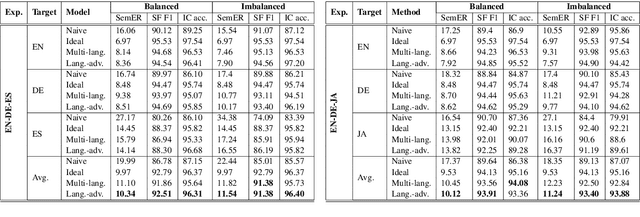
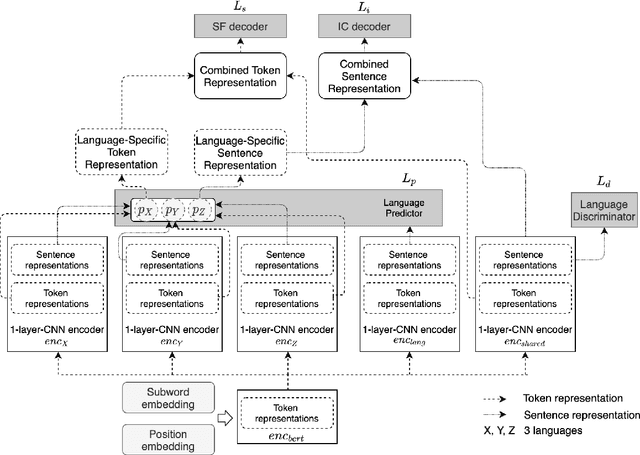

Abstract:This paper addresses the question as to what degree a BERT-based multilingual Spoken Language Understanding (SLU) model can transfer knowledge across languages. Through experiments we will show that, although it works substantially well even on distant language groups, there is still a gap to the ideal multilingual performance. In addition, we propose a novel BERT-based adversarial model architecture to learn language-shared and language-specific representations for multilingual SLU. Our experimental results prove that the proposed model is capable of narrowing the gap to the ideal multilingual performance.
Data balancing for boosting performance of low-frequency classes in Spoken Language Understanding
Aug 06, 2020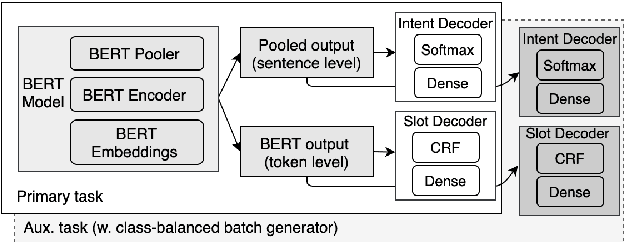
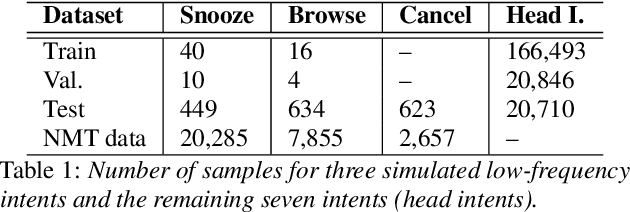
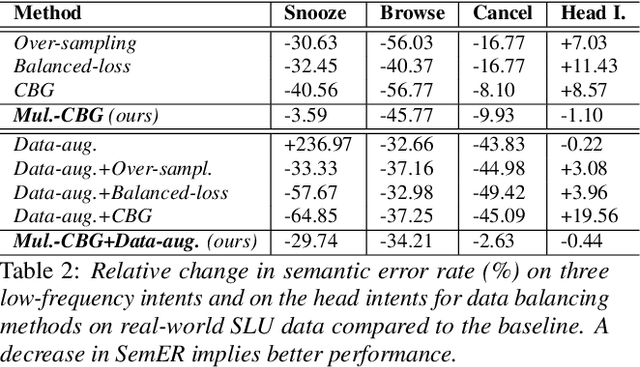
Abstract:Despite the fact that data imbalance is becoming more and more common in real-world Spoken Language Understanding (SLU) applications, it has not been studied extensively in the literature. To the best of our knowledge, this paper presents the first systematic study on handling data imbalance for SLU. In particular, we discuss the application of existing data balancing techniques for SLU and propose a multi-task SLU model for intent classification and slot filling. Aiming to avoid over-fitting, in our model methods for data balancing are leveraged indirectly via an auxiliary task which makes use of a class-balanced batch generator and (possibly) synthetic data. Our results on a real-world dataset indicate that i) our proposed model can boost performance on low frequency intents significantly while avoiding a potential performance decrease on the head intents, ii) synthetic data are beneficial for bootstrapping new intents when realistic data are not available, but iii) once a certain amount of realistic data becomes available, using synthetic data in the auxiliary task only yields better performance than adding them to the primary task training data, and iv) in a joint training scenario, balancing the intent distribution individually improves not only intent classification but also slot filling performance.
 Add to Chrome
Add to Chrome Add to Firefox
Add to Firefox Add to Edge
Add to Edge